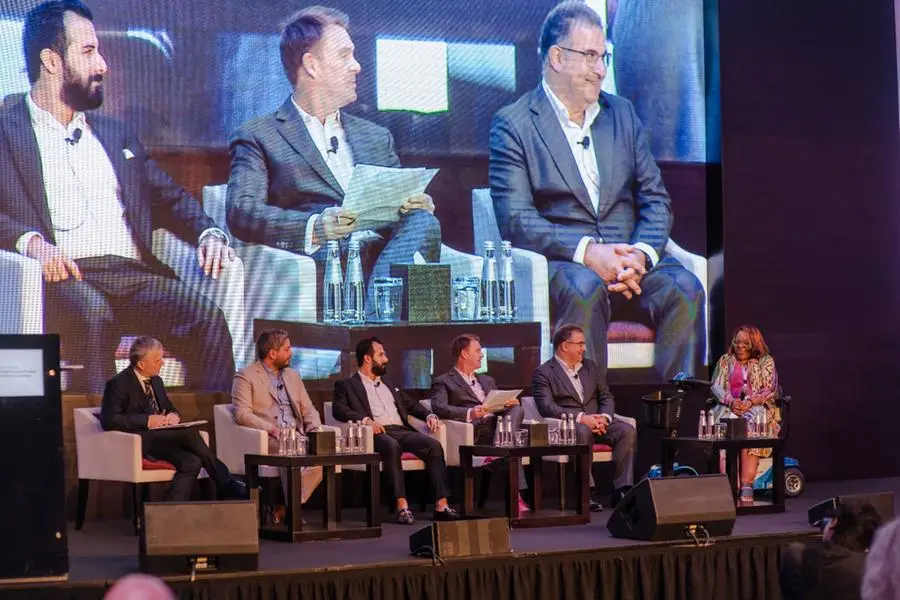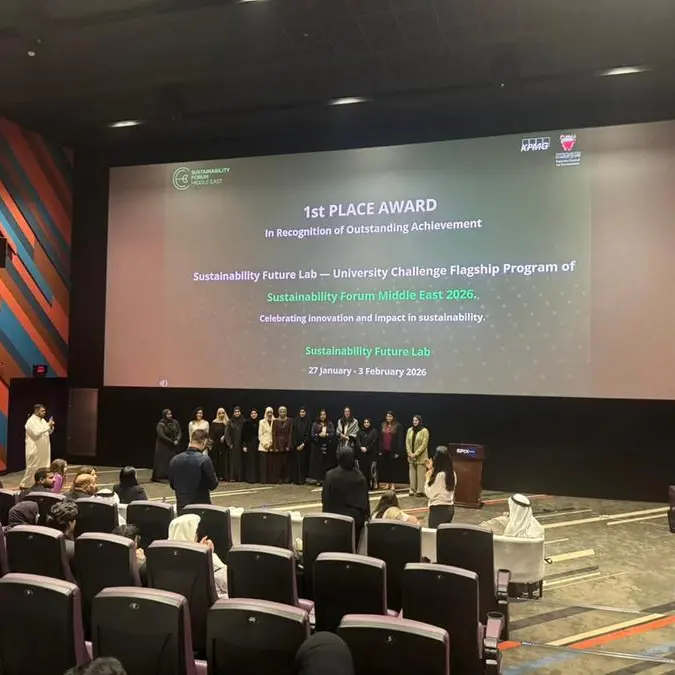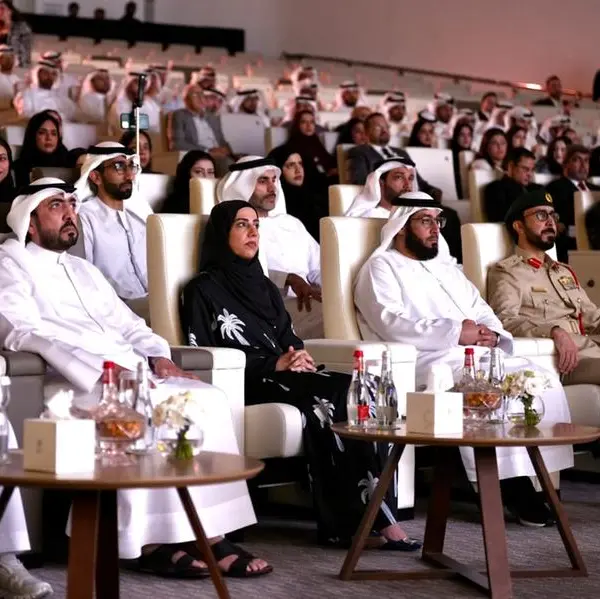PHOTO
- Experts call for tapping disability travel market potential
- IATA recommends establishment of advisory councils and practical steps
Dubai: The 4th Accessible Travel and Tourism International Conference in Dubai concluded today with a call to appropriately tap the disability travel market by making all cities fully accessible to people with disabilities.
Dubai hosted the Conference at the JW Marriott Marquis Hotel in Business Bay under the patronage of His Highness Sheikh Ahmed bin Saeed Al Maktoum, President of Dubai Civil Aviation Authority, Chairman of Dubai Airports and Chairman of Emirates Airline and Group, with the aim to highlight the achievements of the UAE to become the most friendly destination for tourist with disabilities.
His Highness had said that the UAE is a pioneering country in which people of determination receive special priority and the country is on the path to becoming the best destination in the world for tourism services, and he called for concerted international efforts to ensure the provision of accessible tourism for more than 1.3 billion people with disabilities.
Speakers and experts said Dubai is on the way to becoming a wonderland for accessibility.
Jeff Strachan, Associate Vice President-Business Operations, Dubai College of Tourism, UAE, said: “Dubai is a unique destination and is working on its way to become a wonderland for tourists with disabilities. It is spending massively to make the city the most accessible in the world by making all its facilities and attractions accessible to all. Dubai is on the way to becoming a wonderland for accessibility. “
Luis Felipe de Oliveira, Director General of ACI World, said: “As the voice of the world’s airports, ACI World remains steadfast in our dedication to the development of an accessible and inclusive air transport system. We collaborate closely with ACI airport members, international partners, and accessibility advocacy groups to formulate resources and best practices that help and guide airports in reducing barriers to accessibility. Airports around the world have recognize and demonstrated their commitment, not least through the ACI Accessibility Enhancement Accreditation program—the only international assessment/accreditation program dedicated to airport accessibility to passengers with disabilities. There is no debate: access to transport is a right for all people.”
The conference is sponsored and supported by Emirates Airlines as the Official Airline, Dubai Economy and Tourism, Dubai Civil Aviation Authority (DCAA) as a Strategic Partner, as the Destination Partner, Dubai Duty Free as Silver Sponsor and JW Marriott Marquis Hotel as the Official Host. Several senior officials and experts from local government agencies like the Dubai Municipality, Roads and Transport Authority, and the Dubai Economy and Tourism, along with international organizations like the UN World Tourism Organization (UNWTO), UNESCO, and Airports Council International (ACI-World).
Accessible Travel and Tourism International Conference is organized annually by Nadd Al Shiba PR & Event Management in Dubai.
Ghassan Suleiman, Secretary-General of the Conference, thanked His Highness Sheikh Ahmed bin Saeed Al Maktoum, President of Dubai Civil Aviation Authority, Chairman of Dubai Airports and Chairman of Emirates Airline and Group, for his generous sponsorship of the conference. He thanked all partners, participants and speakers for their constructive interaction and their keenness to cooperate in order to come up with innovative ideas and proposals that would pave the way towards a more vibrant and innovative future for the tourism sector in the region and the world.
Ghassan Suleiman said: “More than ever, the tourism sector needs concerted efforts between various parties with a common interest in order to adopt the concept of comprehensive tourism that meets the aspirations of millions of people with special needs, from the moment they think about embarking on a tourist trip, until the moment they arrive. I am confident that we will witness fruitful results in the near future from such initiatives.”
According to WHO, the percentage of persons with disabilities worldwide ranges between 15 and 16%, which translates to roughly 1.2 billion to 1.3 billion people, 50 million of whom live in the Middle East and travel as residents, visitors, or tourists around the world’s cities. Approximately 15% of persons with disabilities want to travel and see the world. Added to this big number is the large number of senior citizens who are potential tourists.
“Improving accessibility will help expand the tourism market and improve its market share, boost competitiveness, increase tourist numbers, and improve the overall quality of life,” said Trinidad Dominguez Vila, Professor of the University of Vigo, Spain.
As high as 1.3 billion people are persons of disability, accounting for 15% people of world population and the number will rise to 1.5 billion by 2050. 35% of world population are above 65 years with some disability. In effect, one-fifth of the world population is disabled.
The market potential of increasing accessibility for disabled tourists is increasing. Potential tourism revenue is projected to rise to $210.48 billion and total potential market of travellers will rise to 267.9 million from the current 134 million.
Experts said the disability travel market has a greater economic impact on travel industry than ever before. The missed opportunities for the global economy and tourism markets amount to 142 billion euros (AED 570 billion) per year due to the reluctance of millions of disabled people to travel in the face of non-availability of services and facilities appropriate for them in several cities of the world.
Igor Stefanovic, Technical Coordinator of Ethics, Culture and Social Responsibility Department, UNWTO Specialist in Accessible Tourism, Spain, made presentation on how are tourism policies evolving towards a more inclusive and accessible society.
“National tourism administrations and destination management organisations should advance their accessible tourism policies and strategies and they should go beyond mere completion of legislative obligations by using international standards, guidelines, and nurturing the work of the tourism industry as accessibility is seen as a competitive advantage and a benefit for all.”
Public administrations should apply ISO Standard 21902 Accessible tourism for all.
Salah Zaki Khaled, UNESCO Representative for Gulf and Yemen, Director of UNESCO Regional Office in Doha, spoke on the growing accessibility of cultural and heritage sites and natural attractions.
“There is a growing demand for nature-based tourism along with visits to heritage sites and cultural and historical attractions. These sites getting more accessible and more open than ever before for disabled tourists,” he said.
Opportunities for improving accessibility are massive as there is growing need to ensure inclusivity of heritage,
Evan Hall, Chief Executive Officer, Tourism Council of Western Australia, made a presentation on how can tourism businesses become more accessible.
He recommended removal of barriers by encouraging tourism businesses to develop and online guide that provide visitors with specific and detailed information about a business’ accessibility.
“Disabled adults are spending $58.7 billion on their travel alone. Europe alone could get potential revenue of 88.6 billion euros by 2025. More than $17 billion per year can come from their travel in the US,” he said.
IATA Recommendations
At a Workshop held as part of the Accessible Travel and Tourism International Conference, International Air Transport Association (IATA) has made some valid recommendations on how to improve mobility assistance services through better communication, shared accountability, and correct use of codes.
The workshop shared best practices and educational tools to overcome the issues such as the lack of prenotification of the service, misuse of wheelchair assistance as a one-size-fits-all solution. The Workshop offered recommendations on how to offer better service to customers and cater to the needs of those passengers who are not disabled but still request assistance.
The panelists were Mouza Saeed Rumaihi, Manager, Special Handling Department, Dnata; Mark de Laurentiis, Director, ENAC Passenger Experience on the Autism Project, Italian Civil Aviation Authority, Italy; Hilal Kahraman, Experience Design and Segment Management Chief, IGA Istanbul Airport, Turkey; Xavier Mascarell, Accessibility Proposition Manager, Responsible Business, Sustainability, British Airways, UK; and Conor Halpin, Director of Business Development, PRMAssist, Ireland.
The Workshop was moderated by Linda Ristagno, Head of Accessibility and Tourism, IATA, Geneva.
-Ends-
For more information, please contact:
Ghassan Suleiman
Secretary-General
Accessible Travel and Tourism International Conference
Email: ghassan.amhaz@naddalshiba.com




















